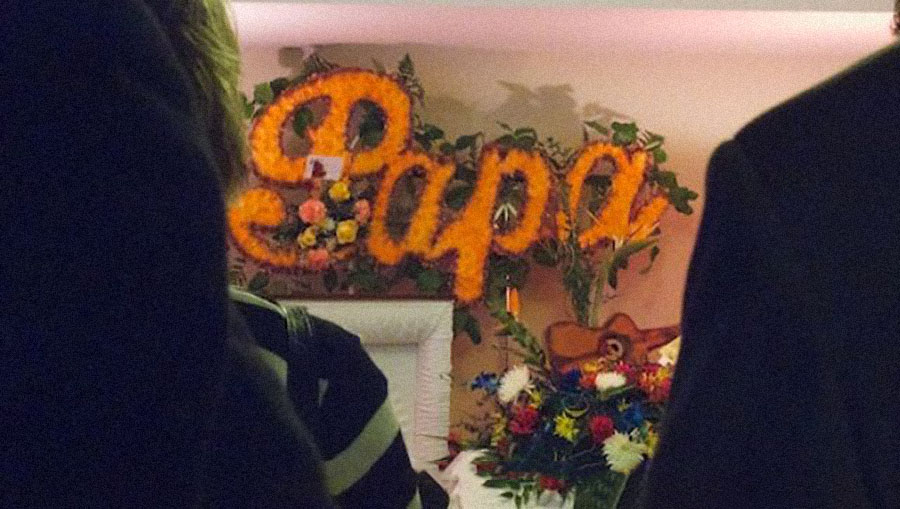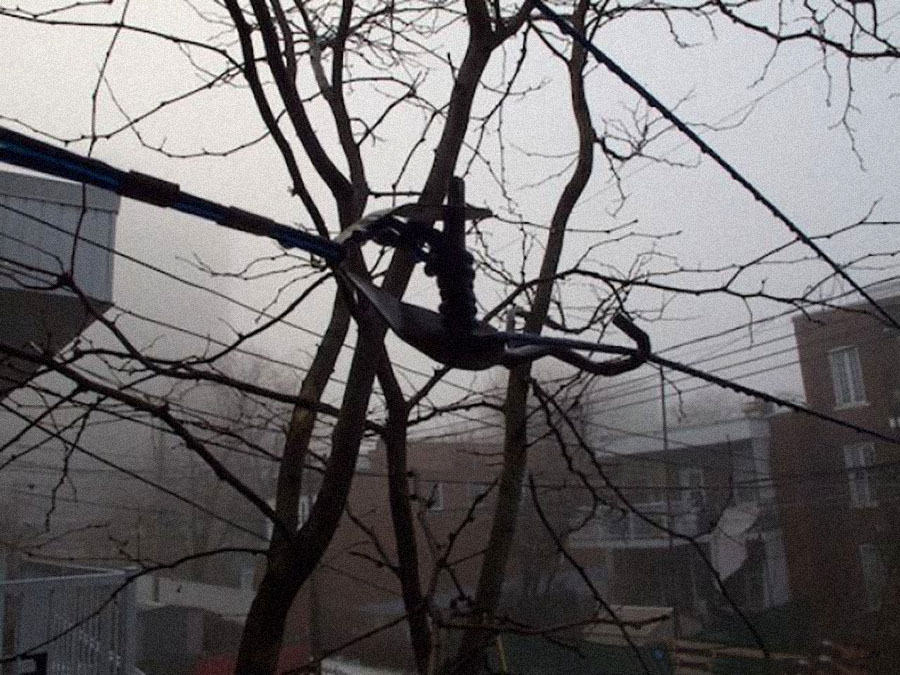
Their Daddy
March 19, 2012
One could easily believe, from reading these "promenades," that my days are an insistent *ars moriendi*. Yesterday was the second funeral of the year for us, my uncle, Bruno, past away, and there is so much to say.
It is the obligatory family encounter where we have the opportunity to see and love the kinship, to realize that everyone is getting older, to recognize ourselves in them and, at the same time, to feel deeply alienated from their lives, realizing that we know little about the stories of our family, that there would be much to write about. Michel Tremblay et co. have understood this and they are drawing the bulk of their creation from the same source.
Funerals are the occasion to talk to your own family, to see your father and mother, your sisters, to enjoy laughing with them, to be pleasantly frank while still keeping a little embarrassment. We reassure ourselves that we are still alive, beginning to think that we may see each other more and more often for such meetings.
The lower strata of the lineage sink slowly, the upper thickens and takes root in the soil thus formed. We all realize this and, like convicts, face death which, embalmed, occupies the front of the room, ready to hear the memories of the living.
I was touched by the testimonies of Bruno’s children. They described in turn, with emotion, the existence of this "ordinary guy," an unknown Leo Ferré, having a beautiful vocabulary and washing floors. Like a worker priest incarnating his existence in the world and presenting a deaf ear to the slanders of his Church, Bruno sang of injustice, scraped his guitar to lighten the exhausted hearts of the little people.
Precious lips could suggest that he was just an artist or a failed poet. I will retort that it has very little importance, because only Time, Death’s brother, will decide, and long after the Pharisees have finished marinating in their vinegar, who was a poet and who was not. Bruno did not have the success he deserved, many would say. We won’t know a damn thing about it. End of the discussion.
On the wall, above the deceased’s open tomb, the word "dad" written in large orange and flowery letters. On the left, a guitar in bloom, another on the right, in the same tone. Bruno and his guitar, the uncle who sang, for my mother’s family, the brother who put pep into the meetings. For his family, in light of what I understood yesterday, he was the singing father. The children all know his somewhat western compositions by heart, for his brother and godson Serge Giguère who made a documentary of them—*L’homme qui chantait s’ua job (The man who sang at job)*—. Bruno represented the voice of the people, the one that will always insist on being heard, in its own way, and without any means, that sometimes expresses itself a little too closely, but always with sincerity.
We will say that this voice is confused with childhood, that it is naive. I would say that it is under no illusions and that it is thus closer to the truth, and that, when we think about it, we are all sitting in a small dark bar, sipping our desire to live and getting drunk on a few pleasures, listening to an obscure singer gently telling us our four truths. Remember that you will have to die. And for now, it’s all about living well.
It is the obligatory family encounter where we have the opportunity to see and love the kinship, to realize that everyone is getting older, to recognize ourselves in them and, at the same time, to feel deeply alienated from their lives, realizing that we know little about the stories of our family, that there would be much to write about. Michel Tremblay et co. have understood this and they are drawing the bulk of their creation from the same source.
Funerals are the occasion to talk to your own family, to see your father and mother, your sisters, to enjoy laughing with them, to be pleasantly frank while still keeping a little embarrassment. We reassure ourselves that we are still alive, beginning to think that we may see each other more and more often for such meetings.
The lower strata of the lineage sink slowly, the upper thickens and takes root in the soil thus formed. We all realize this and, like convicts, face death which, embalmed, occupies the front of the room, ready to hear the memories of the living.
I was touched by the testimonies of Bruno’s children. They described in turn, with emotion, the existence of this "ordinary guy," an unknown Leo Ferré, having a beautiful vocabulary and washing floors. Like a worker priest incarnating his existence in the world and presenting a deaf ear to the slanders of his Church, Bruno sang of injustice, scraped his guitar to lighten the exhausted hearts of the little people.
Precious lips could suggest that he was just an artist or a failed poet. I will retort that it has very little importance, because only Time, Death’s brother, will decide, and long after the Pharisees have finished marinating in their vinegar, who was a poet and who was not. Bruno did not have the success he deserved, many would say. We won’t know a damn thing about it. End of the discussion.
On the wall, above the deceased’s open tomb, the word "dad" written in large orange and flowery letters. On the left, a guitar in bloom, another on the right, in the same tone. Bruno and his guitar, the uncle who sang, for my mother’s family, the brother who put pep into the meetings. For his family, in light of what I understood yesterday, he was the singing father. The children all know his somewhat western compositions by heart, for his brother and godson Serge Giguère who made a documentary of them—*L’homme qui chantait s’ua job (The man who sang at job)*—. Bruno represented the voice of the people, the one that will always insist on being heard, in its own way, and without any means, that sometimes expresses itself a little too closely, but always with sincerity.
We will say that this voice is confused with childhood, that it is naive. I would say that it is under no illusions and that it is thus closer to the truth, and that, when we think about it, we are all sitting in a small dark bar, sipping our desire to live and getting drunk on a few pleasures, listening to an obscure singer gently telling us our four truths. Remember that you will have to die. And for now, it’s all about living well.

